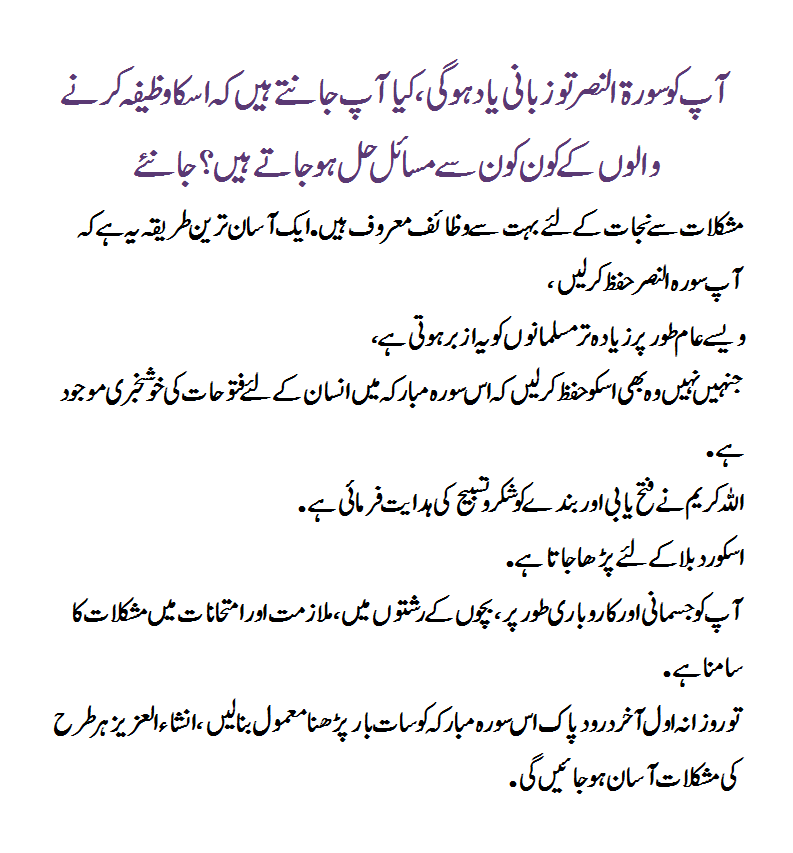There were many victories for Islam, but no triumph was as important as the bloodless conquest of Mecca, especially the Arabs believed, according to some narrations, that if the Prophet of Islam (S) could conquer and capture Mecca, then, it was a sign of his legitimacy because if he were not right, Allah would not let him do so, as He did not allow Abrahah and his great force to destroy the Ka’ba.
It was for this reason that the Arab pagans entered Islam, in groups, after the conquest of Mecca.Some have said that this Surah was revealed alongside the
‘Hadibiyyah Peace’; six years after migration and two years before the conquest of Mecca.But, it is completely improbable to say, (as some have said), that it was revealed at the time of the farewell Pilgrimage after the conquest of Mecca,
in the year 10 A.H. because, the ideas involved in the Surah, which inform of the incidents regarding the future, not the past, do not fit with this meaning.
One of the names of this Surah is /taudi’/ ‘leave-taking’,” because it implicitly implicates the death of the Prophet (S).
A tradition indicates that when this Surah was revealed and the holy Prophet (S) recited it to the followers, they all became happy, but Abbas, the uncle of the holy Prophet (S), began shedding tears.
The holy Prophet (S) asked him why he was crying. He answered that he supposed the Surah contained the implication of the Prophet’s death.
